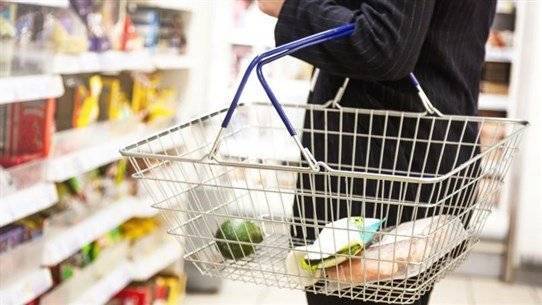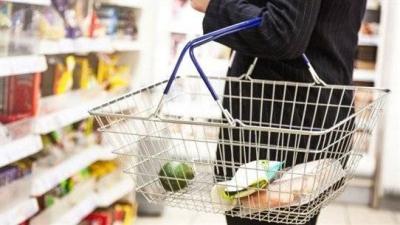Lebanese citizens are dealing with a "national currency" that loses its value daily, leading to a decline in purchasing power. The vast majority still receive their salaries in Lebanese pounds, compared to a small number who get paid in dollars. This situation has forced many consumers to alter their previously luxurious lifestyles, now struggling to secure their essential needs. Those once considered middle class find themselves in poverty, while the poor are now sinking into extreme poverty. Lebanon ranked first globally on the World Bank's food inflation index, surpassing Zimbabwe in second place and Venezuela in third. This highlights the impending challenges for Lebanon, which is experiencing a severe food security crisis. The World Bank warned in a recent report about the dangers of persistent high inflation in most low- and middle-income countries, noting that high-income countries facing inflation are also seeing a sharp increase in their rates.
**Key Reasons**
The World Bank's statistics for 2022 indicated that "food and drink prices continue to rise in many countries in the Middle East compared to the same period last year." The direct cause of this reality was attributed to the Russian war on Ukraine, as the region heavily relies on the Black Sea for wheat consumption, confirming that the war threatens poorer countries with a food crisis. While the report noted that "wheat is a staple food in the Middle East and North Africa, the war in Ukraine is disrupting wheat supply chains, causing critical problems in food security in the region." Consequently, the consumer price index for food rose significantly in most countries of the region, where Lebanon recorded 216 percent. The report stated that "the Russian war on Ukraine came at a time when food prices were already rising due to a range of factors, mainly drought conditions affecting major crop-producing countries and the COVID-19 pandemic impacting global supply chains, putting poorer countries in a dire situation due to lockdowns."
**Inflation and Declining Purchasing Power in Lebanon**
In addition to the Russia-Ukraine war, Lebanon is experiencing a severe economic crisis that has accelerated the country’s collapse. The World Bank describes the crisis in Lebanon as "one of the most severe crises in the last hundred years," emphasizing that food insecurity continues for several reasons, including record increases in food prices that have pushed 19 percent of its population to face some form of food scarcity, alongside ongoing armed conflicts and displacements exacerbating food insecurity in some countries of the region. A survey of some shops and supermarkets revealed that one wholesale trader stated, "about 75 percent of the Lebanese population has been forced to change their daily behaviors, where product quality or brand is no longer important; what they focus on are food prices, shifting to cheaper options." On the other hand, despite a small segment of the population not being affected by rising prices and still able to secure their basic and luxury needs, the availability of these goods and well-known global brands in Lebanese markets (for example, Lesieur oil) is no longer what it once was. Most of these goods are missing due to their high prices, leading Lebanese importers to avoid them and turn to cheaper alternatives to align with market demands. The same source pointed out that "the problem today lies in the lack of oversight on goods entering the country, with these goods often being low-priced and of low quality, sometimes not meeting specifications, such as Turkish and Syrian goods that enter through smuggling. Ultimately, people rush to buy them due to their lower prices."
**Customs Dollar**
Minister of Economy in the caretaker government, Amin Salam, mentioned in a radio interview that "what is rumored about the 20,000 lira price for the customs dollar is not official yet, as the price will be agreed upon in the coming days between the Minister of Finance and the Governor of the Central Bank." But what will happen when the customs dollar increases? How will it affect commodity prices? Economic and social council member Dr. Anis Bou Diab answers this question by saying: "The Lebanese street will see further deterioration in purchasing power on one hand, and on the other hand, this decision will not lead to increased state revenues, as the primary goal of raising the customs dollar is to increase revenues, due to several factors including: an increase in smuggling, especially since Lebanon’s borders are open without any oversight or controls; increased corruption in the country (we will witness a number of goods that are not subject to customs duties); a lot of discussions and claims have been circulating about the increase in customs duties for a year now, leading merchants to preemptively import all the required goods for consumption for the years 2021 and 2022, and even into 2023, based on a customs dollar exchange rate of 1,500 liras for the purpose of stockpiling for future use, which has disrupted the trade balance, with numbers doubling by the end of 2021 and into the middle of 2022. Scientifically speaking, as the increase in exchange rates is a monetary measure, it should have been implemented quickly and raised gradually with an improvement in wages for workers, particularly in the public sector."
Finally, Bou Diab warned consumers of the monopolistic practices and corruption among traders, who will find the increase in the customs dollar a new excuse to raise their prices. "Citizens should be aware of which goods are subject to customs duties and which are not, in order to avoid falling into the traps set by corrupt traders."




